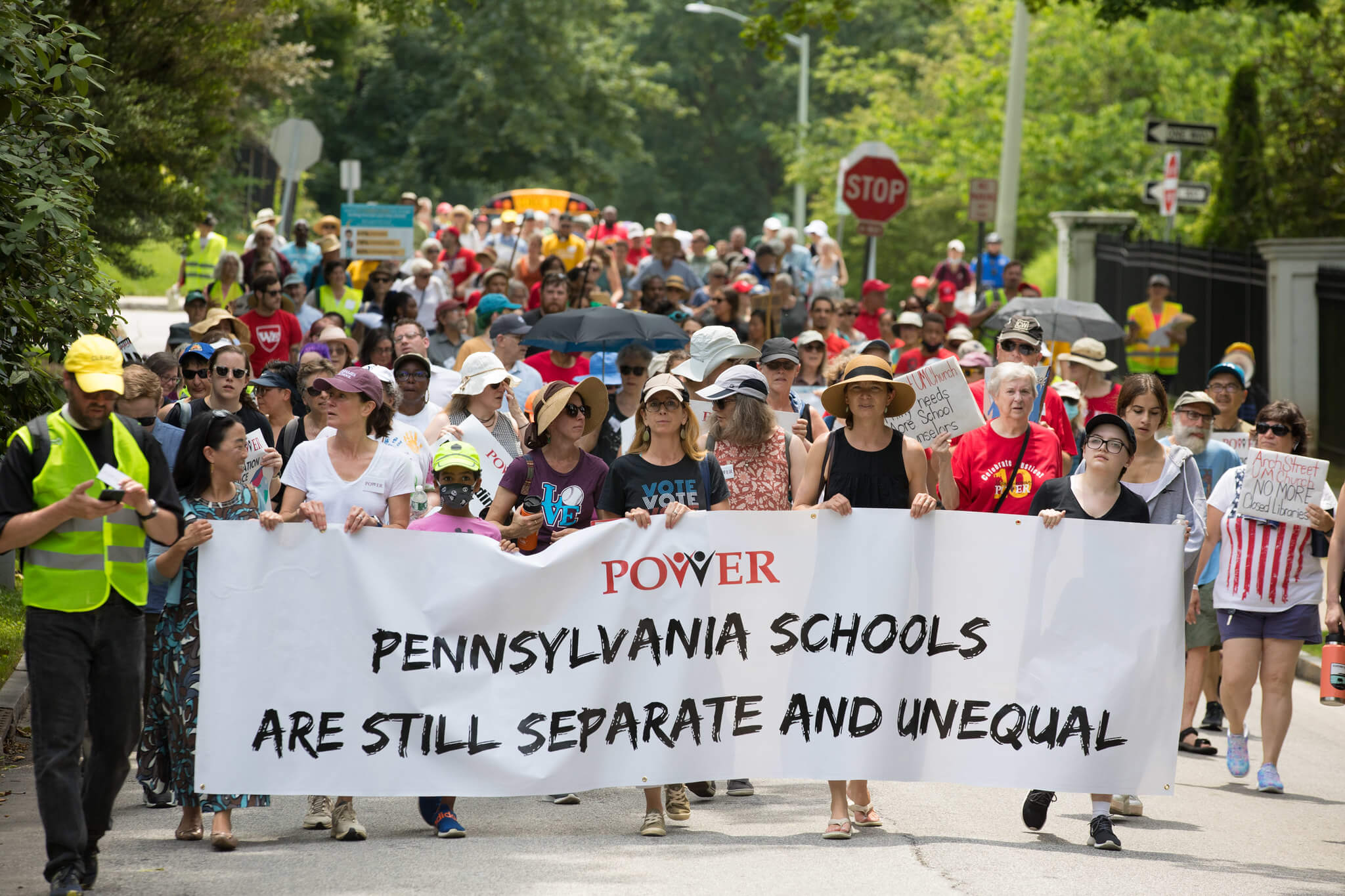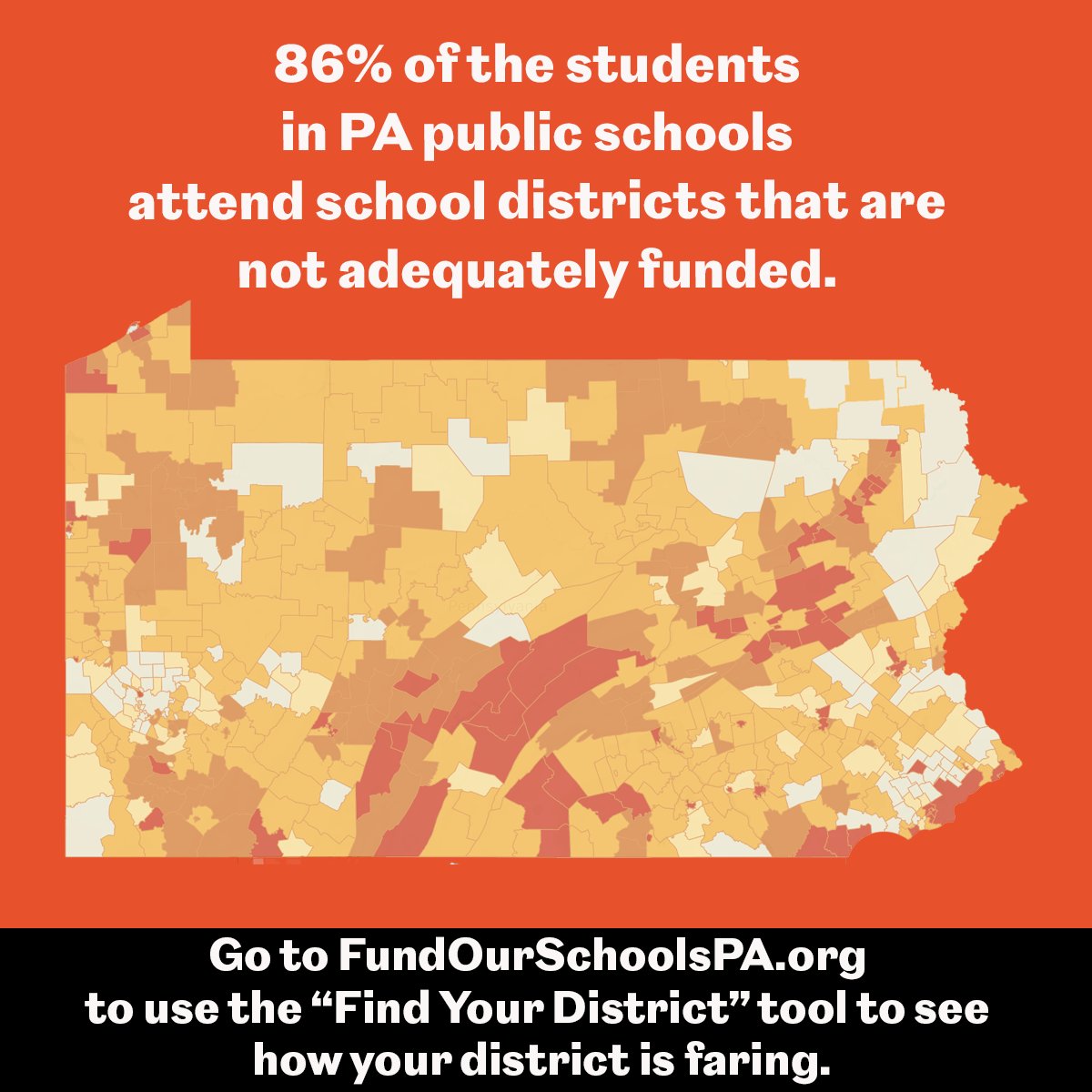The buck (and bucks) stops with Pennsylvania’s General Assembly.
According to the state constitution, the legislative body must “provide a thorough and efficient system of public education to serve the needs of the Commonwealth.”
The problem is, however, who defines what these needs are, how to properly fund these needs, and whether these needs are being met.
For a parent of a school-aged child in the Commonwealth, educational needs may include a low teacher-to-student ratio, updated textbooks, availability of a wide variety of academic courses, or buildings equipped with a library or guidance counselors instead of asbestos, mold, and lead pipes.
And, for some parents, public education may be about helping raise kids into well-rounded, critically-thinking adults who not only benefit society as members of the workforce, but also as engaged citizens in our democracy.
And these needs should be met regardless of income, race, or ethnicity.
GOP Attorney John Krill has a different idea.
He thinks PA’s public education system meets the Commonwealth’s needs as long as it produces an adult capable of serving him a Big Mac and French Fries.
“What use would someone on the McDonald’s career track have for Algebra 1?” asked Krill at Pennsylvania’s historic school funding trial.
There’s nothing wrong with working for McDonald’s, or anywhere for that matter. But, should being a student at a low-income middle school really mark you early on for this “career track?”
He continued with this brilliant defense.
“The question in my mind is, thorough and efficient to what end? To serve the needs of the commonwealth,” Krill added. “Lest we forget, the commonwealth has many needs. There’s a need for retail workers, for people who know how to flip a pizza crust.”
Krill actually said the quiet part out loud, and we probably should all thank him because it provides us with clarity. The GOP not only doesn’t give a damn about the quality of your child’s education, they think the system, as is, actually works because they need people to serve them, and these low-income, Black, and/or Latino kids are the perfect candidates.
But this isn’t just about callous and crass Republicans. It’s a systemic failure.
“We need to address systemic racism and poverty as tangible barriers to learning and future achievement,” said Bucks NAACP President Karen Downer back in January. “We want the court to direct the state to create and maintain a constitutional school funding system that enables all students to receive the resources they need to meet Pennsylvania’s state standards.”
Downer is absolutely right. In Bucks County, look at the huge gulf between $30,144 per New Hope-Solebury district student and the $14,613 spent on each Bristol Borough student.
In fact, according to Philadelphia-based Research for Action, as of 2020 “PA high schools rank among the five worst states nationally, based the size of the gaps in the Average Opportunity Score between Black and White, between Hispanic and White, and between FRPL [free or reduced price-lunch program] and non-FRPL students.”
These inequities help determine outcomes and widen achievement gaps.
The funding system is flawed in two major ways that lead to these inequities. The first problem is the over-reliance on local property taxes. This leaves low-wealth school districts at a distinct disadvantage.
“Affluent districts spend 33% more per pupil than the state’s poorest districts,” noted the Pennsylvania Budget and Policy Center in November.
The other issue, as the PBPC pointed out, is that since the 1970s, typically Republican-controlled General Assemblies have gutted state contributions to education funding, from 54 percent of overall costs to 33 percent.
“Let me say it again, because it’s the whole case,” said attorney Katrina Robson in her closing arguments for the plaintiffs. “Low-wealth districts do not have the resources that they need to prepare all children for college, career and civic success.”
Commonwealth Court Judge Renée Cohn Jubelirer, who presided over 40 days of arguments, with testimony from dozens of witnesses and more than 1,100 admitted exhibits, is tasked with making a decision that not only potentially affects the 1.7 million K-12 students in our state, but also the health of our democracy.
Will she side with the plaintiffs, who include school districts from across the state, families, and the state NAACP, and order the state government to create a new, just, constitutional funding system that raises academic standards, provides fair, if not equal, funding, and doesn’t discriminate against low-income- and communities of color?
Or, will she side with the Republican leaders of the Pennsylvania House and Senate and maintain the status quo?
Let’s hope Judge Cohn Jubelirer decides to hold the fries, and instead orders a new education funding system that equitably and justly provides the money, resources, and tools to these underserved communities and school districts. That would be a lesson these Republican lawmakers should be taught.








